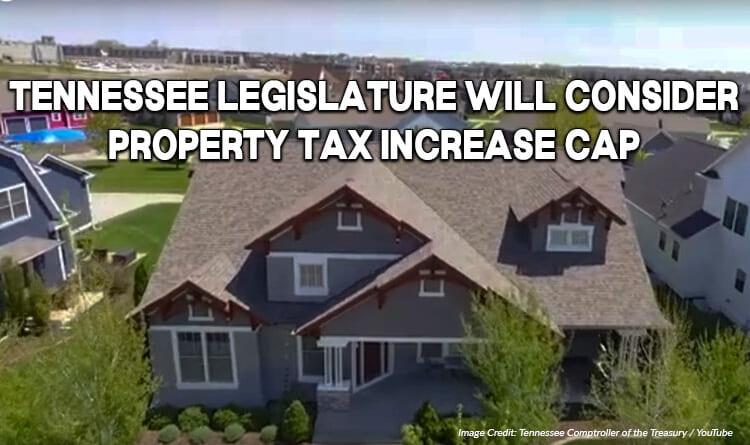Image Credit: Tennessee Comptroller of the Treasury / YouTube
The Center Square [By Jon Styf] –
A Tennessee bill would cap property tax increases in the state at 2% plus inflation each year and 6% plus inflation over a three-year span.
A higher percentage increase in property tax rates would require a referendum.
Beacon Center recently asked registered Tennessee voters about a property tax cap in a poll with 11% saying local authorities should retain that power while 35% said a statewide cap should exist and 39% said there should be a combination of state regulations and local decision-making.
“It is clear that people are unhappy with the current property tax system in Tennessee, with just 11% of registered voters supporting the status quo of leaving the decision to increase property taxes solely to the local mayor and city council/county commission,” Beacon Center Vice President of Communication and Outreach Mark Cunningham said about those results. “A large majority of Tennesseans (67%) also support a state property tax cap so long as property tax increases have to be approved by voters via referendum.”
Just 27% of those polled said they believe local governments are spending property taxes wisely, 31% believe they are not and 42% said they are unsure or neither.
House Bill 565 is sponsored by Rep. Chris Todd, R-Madison County, and is assigned to the Property and Planning Subcommittee of the Local Government Committee.
Sen. John Stevens, R-Huntingdon, is sponsoring companion bill SB 171 that is assigned to the Senate State and Local Government Committee.
The cap would apply to counties, municipalities, metropolitan governments and special school districts that can levy property taxes.
In 2022, there were six counties, 24 municipalities and one special school district that exceeded the cap. In 2021, it was three counties, 37 municipalities and six special school districts and in 2020 it was seven counties, 22 municipalities and one special school district.
A fiscal note on the bills says the impact is expected to be more than $1 million of funding for local governments each year that those entities cannot increase tax rates more than the cap.
“The proposed language may result in LGEs increasing their property tax rates in amounts lower than they would have otherwise to avoid having a referendum,” the note says.












